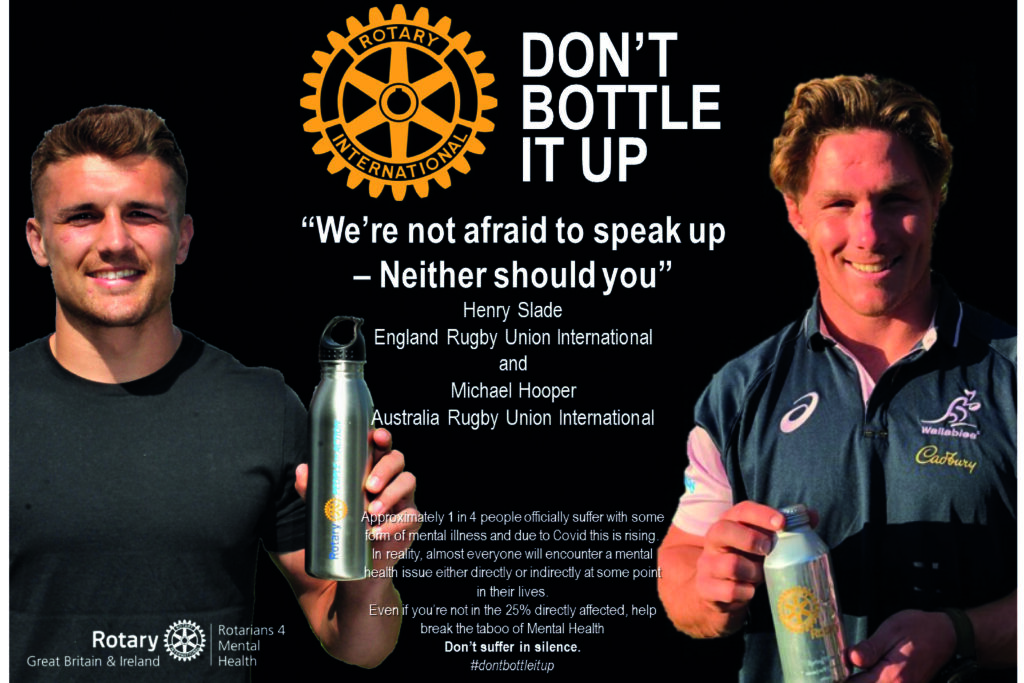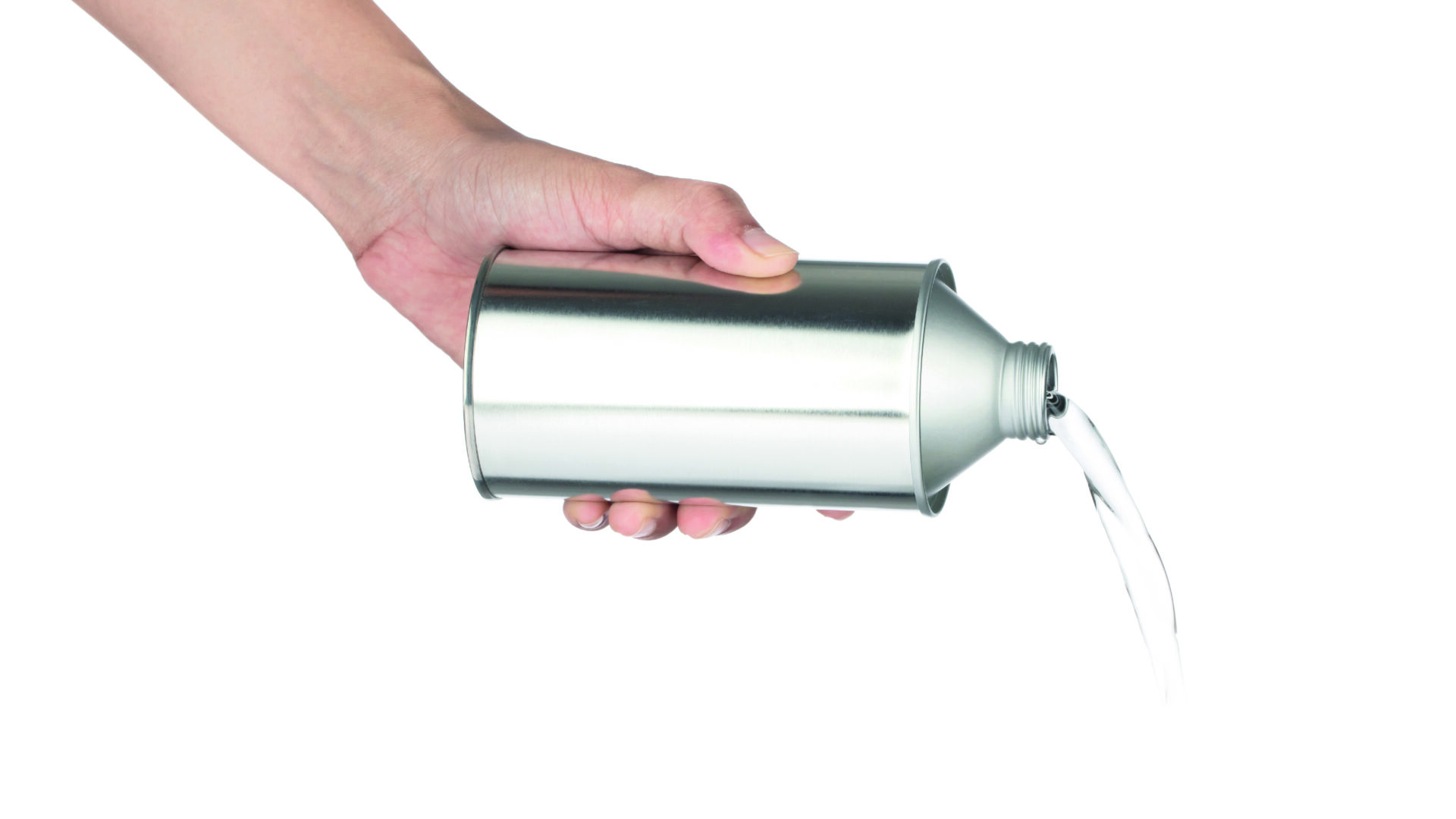By Dave King
Rotary Great Britain & Ireland
Mental health is a topic many of us struggle to front up to. While stigma around mental health is easing, many are still afraid to talk about it.
Roughly one in four of us will be directly affected by mental health or wellness issues, while it is estimated that many of the remaining 75 per cent are indirectly affected.
In his year in office, Rotary International President Gordon McInally challenged Rotarians to address this. Rotary in the UK’s South-West Peninsula had already started.
A legacy of the Rotary district conference in Devon and Cornwall in 2017 is the ‘Don’t Bottle It Up’ awareness campaign, which addresses stigma around mental health.

PICTURED: England Rugby Union International player Henry Slade and Australian Rugby Union International player Michael Hooper have also put their weight behind the Don’t Bottle It Up campaign.
It was a brave call to hold a whole conference plenary session on the subject, the District Governor needed a little persuasion, but it was one of the highlights of the weekend motivating many to ask: “what can we do?”.
One of these was Darren Hands. A few years earlier he had played a pivotal role in the Rotary Great Britain and Ireland adaptation of the ‘This Close to Ending Polio’ campaign.
Modelled on that campaign, Darren started the ‘Don’t Bottle It Up’ campaign, using recognisable public figures and Rotarians to help spread the message that there is help if you need it.
This Rotary campaign in Devon and Cornwall took off and slowly spread around the UK.
When COVID hit, Darren was placed on furlough, becoming a full-time Rotarian! He started visiting clubs online around the world and became a popular speaker on ‘Don’t Bottle It Up’ to clubs and district conferences.
He was also a panellist at the mental health session at the online Rotary International convention of 2021.
The campaign has snowballed and now has the support of close to 500 public figures and members of the Rotary family from over 30 countries – including the likes of RI presidents and England’s Rugby International Henry Slade.
‘Don’t Bottle It Up’ posters have also been translated into Ukrainian and Romanian – with plans for one in an Indian local dialect.
Some public figures have taken the campaign further. Channel 5 newsreader Alyx Barber posed with water pouring out of a bottle.
Rock singer Laura Guldemond caught the imagination of the Rotary Metalhead Fellowship, she signed copies of her image which were distributed at her gigs, some were auctioned for The Rotary Foundation.
There are now district-wide campaigns, and many clubs are adopting it. In India, one club has year groups of their Interact clubs taking part and talking about their mental health.
The Rotary Action Group for Mental Health Initiatives featured a ‘Don’t Bottle It Up’ toolkit on their website (www.ragonmentalhealth.org).
The campaign’s growth, along with that of other such campaigns, has shadowed the increase in mental health awareness, as have initiatives to tackle these issues. Could this be in part to people feeling more able to talk about such issues? Possibly.
And with Gordon’s rallying call, the tide is changing and Rotarians’ attitudes toward mental health are changing.
‘Don’t Bottle It Up’ – get the message out there!
